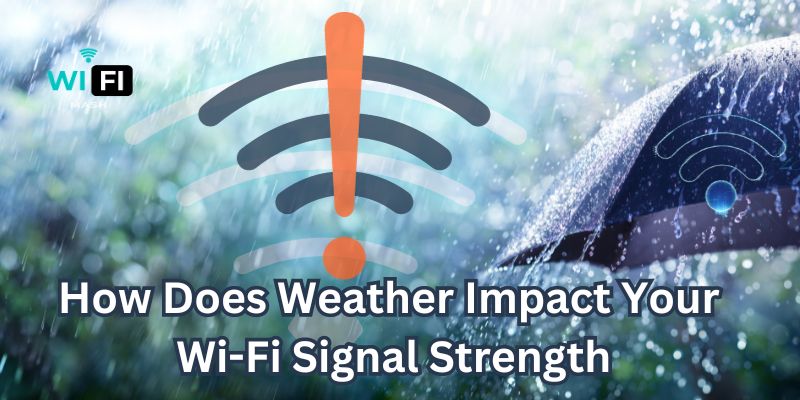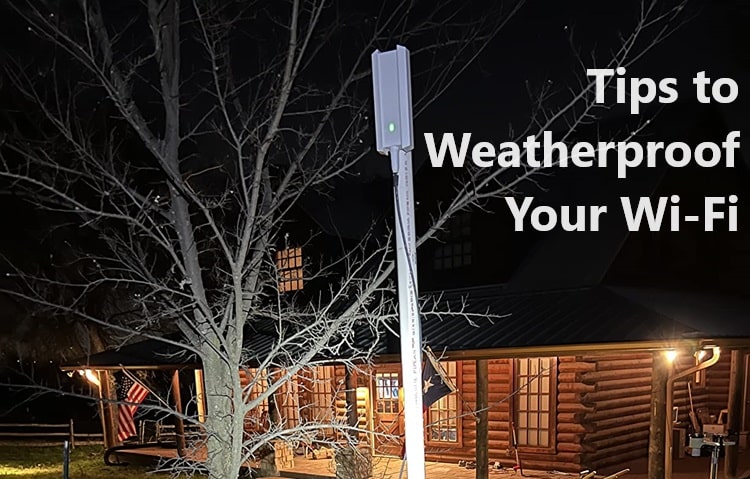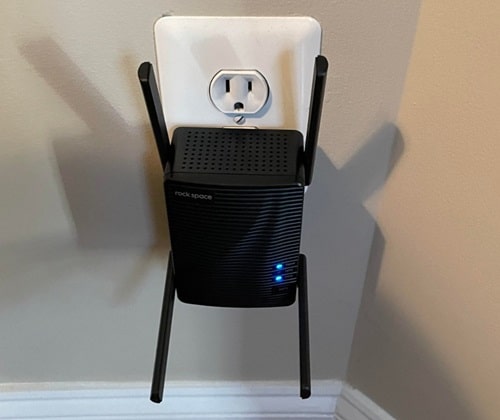Introduction:
In our hyper-connected world, Wi-Fi is the lifeline of our daily digital existence. We rely on it for work, entertainment, and staying in touch with the world. But have you ever wondered if the weather can be a silent saboteur, affecting your Wi-Fi signal strength? Well, wonder no more, because we’re about to unravel the mysteries of how weather and Wi-Fi are intertwined.
Yes, weather can indeed have a significant impact on your Wi-Fi signal strength, and in this article, we’ll delve into the reasons why. From rain and snow to extreme heat and strong winds, the elements can play tricks on your connection. But don’t worry, we won’t just leave you hanging with the problem. We’ve also got a slew of tips to help you keep your Wi-Fi signal strong and resilient, even in the face of Mother Nature’s challenges.
So, sit back, relax, and let’s embark on a journey to uncover the fascinating relationship between weather and Wi-Fi. By the time you finish reading, you’ll be armed with the knowledge to weatherproof your Wi-Fi connection.
How Does Weather Impact Wi-Fi Signal Strength?

Rain and Snow: Nature’s Signal Blockers
When it rains or snows, you might not realize it, but your Wi-Fi signal is facing a formidable adversary. Raindrops and snowflakes are nearly the same size as Wi-Fi wavelengths, which means they can act as tiny antennas, absorbing and scattering the signals. The result? Weaker signal strength and reduced Wi-Fi performance.
Extreme Heat: Overheating Equipment
Just as extreme cold isn’t suitable for your Wi-Fi equipment, extreme heat can spell trouble too. Overheating is a significant concern during scorching weather conditions. It can lead to reduced performance and, in some cases, even equipment failure. Your trusty router may be tough, but it’s not immune to the elements.
Strong Winds: Nature’s Mischief-Makers
Winds can be more than just a pleasant breeze. They can wreak havoc on your Wi-Fi signal too. Strong winds have the power to move objects around, such as trees and branches. These obstructions can block or scatter Wi-Fi signals, making it challenging for your devices to stay connected.
Tips to Weatherproof Your Wi-Fi

Indoor Sanctum
Place your Wi-Fi router indoors, away from windows and doors. This simple step can shield it from the whims of the weather.
Mesh Wi-Fi Magic

Consider using a mesh Wi-Fi system if your home is large or has complex layouts. Mesh systems are designed to provide superior coverage and performance, ensuring a more stable connection.
Upgrade for Resilience
If your router is ancient, it might be time to consider an upgrade. Newer models often come equipped with powerful antennas and features that can enhance performance during adverse weather.
Extend and Conque

Use Wi-Fi extenders or powerline adapters to expand the reach of your network. They can be a lifesaver, especially in larger properties.
FAQ
Can Wi-Fi signals be affected by thunderstorms and lightning?
Yes, thunderstorms and lightning can potentially interfere with Wi-Fi signals due to the electromagnetic interference caused by lightning strikes. It’s a good idea to unplug your router during electrical storms to prevent damage.
Does fog impact Wi-Fi signal strength like rain and snow?
While fog has a different composition compared to rain and snow, it can still affect Wi-Fi signals. Fog can scatter and absorb Wi-Fi signals, leading to some signal degradation.
Can Wi-Fi signals be affected by humidity levels?
Yes, high humidity levels can affect Wi-Fi signal strength. In areas with consistently high humidity, you may experience slightly reduced signal quality, although the impact is typically not as severe as rain or snow.
What’s the impact of extreme cold on Wi-Fi equipment?
Extreme cold can slow down the performance of Wi-Fi equipment. Low temperatures can affect the hardware’s efficiency, especially if it’s exposed to freezing conditions for an extended period.
How do I protect my outdoor Wi-Fi equipment from weather-related damage?
Outdoor Wi-Fi equipment should be housed in weatherproof enclosures or boxes to shield them from rain, snow, and extreme temperatures. It’s crucial to choose equipment explicitly designed for outdoor use.
Can I expect my Wi-Fi signal to recover once the weather clears up?
Yes, in most cases, your Wi-Fi signal strength should improve when the weather conditions return to normal. However, if your equipment has been damaged due to extreme conditions, it may require maintenance or replacement.
Is it possible to measure the exact impact of weather on my Wi-Fi signal strength?
You can use Wi-Fi signal analysis tools and apps to measure signal strength, but they may not provide specific data about the impact of weather. The best approach is to monitor your Wi-Fi performance over time, noting any consistent weather-related issues.
Do different types of Wi-Fi frequencies handle weather differently?
Yes, Wi-Fi frequencies can behave differently in various weather conditions. For instance, 5 GHz signals tend to be more affected by obstacles, including rain and snow, compared to 2.4 GHz signals. Understanding your router’s frequency bands can help you better manage signal strength.
Are there any technologies or materials that can mitigate the impact of weather on Wi-Fi signals?
Some Wi-Fi equipment is designed with weather-resistant features, such as outdoor antennas and enclosures. Investing in these specialized products can help reduce the impact of weather on your Wi-Fi.
What should I do if I’m experiencing ongoing Wi-Fi issues during bad weather?
If weather consistently affects your Wi-Fi signal strength, consider consulting with a professional network technician or contacting your internet service provider for a customized solution to improve your connectivity in adverse weather conditions.
Conclusion:
Weather can indeed play tricks on your Wi-Fi signal strength, but armed with the right knowledge and solutions, you can overcome the challenges Mother Nature throws your way. Protect your connection from the elements by following our tips and, if necessary, reach out to your internet service provider for further assistance. With these strategies in place, you can enjoy uninterrupted, reliable Wi-Fi connectivity, rain or shine. Stay connected and stay informed!